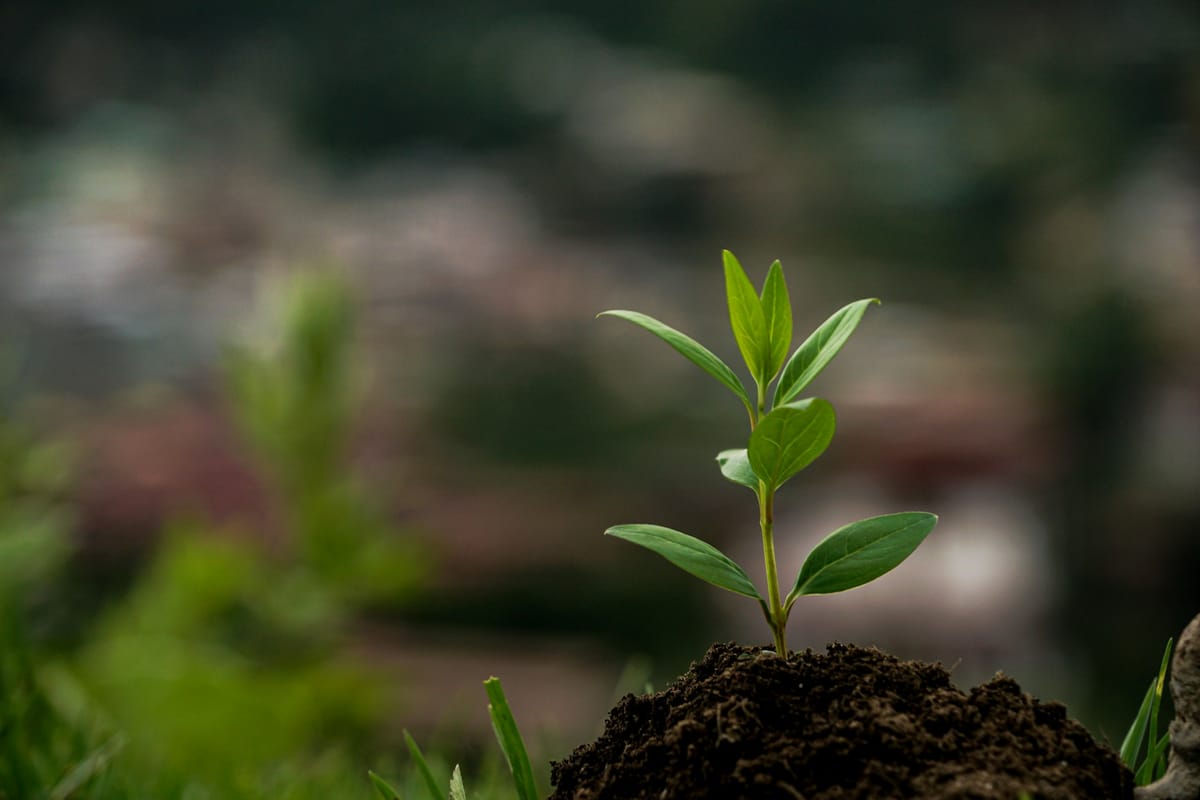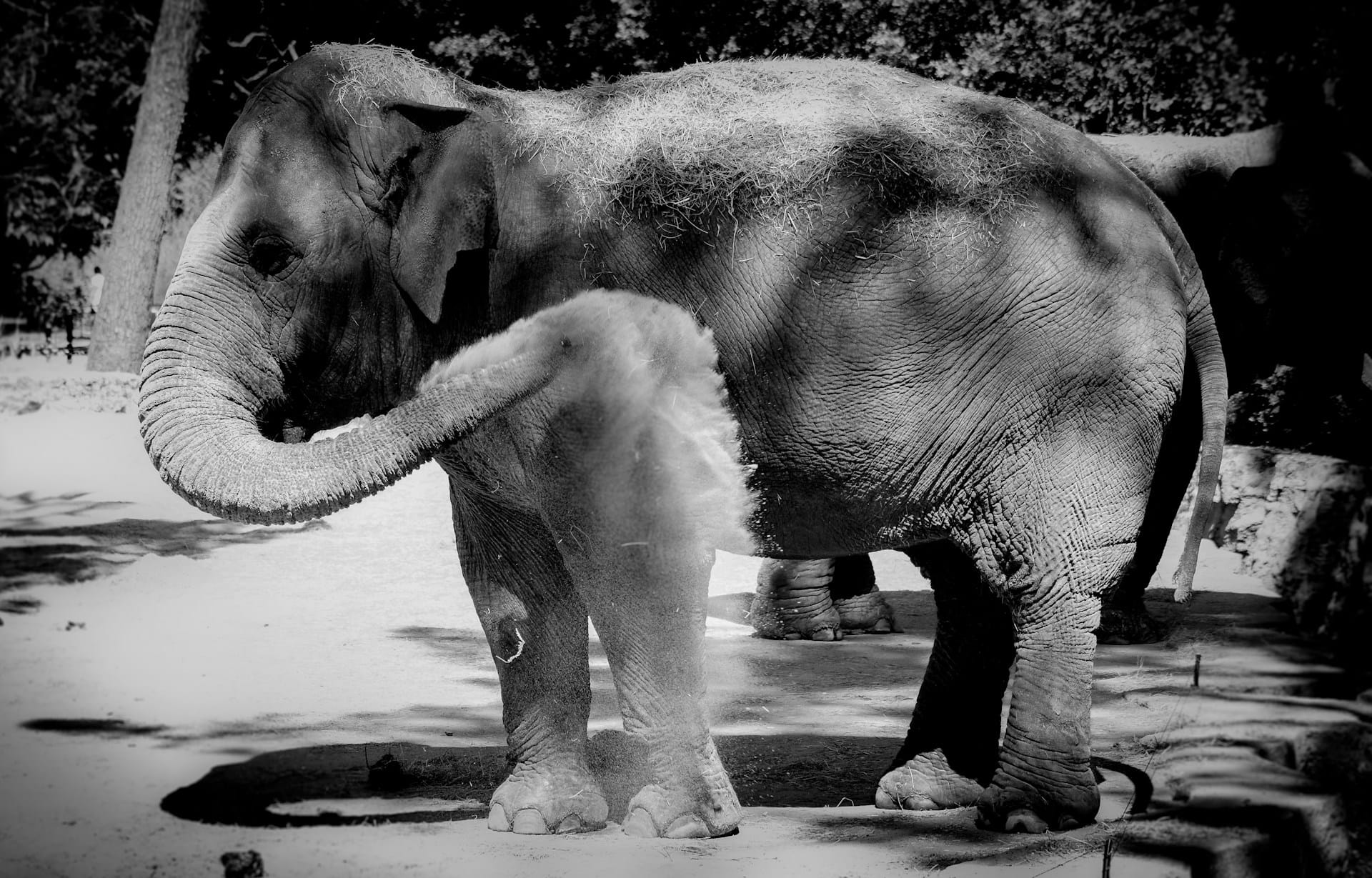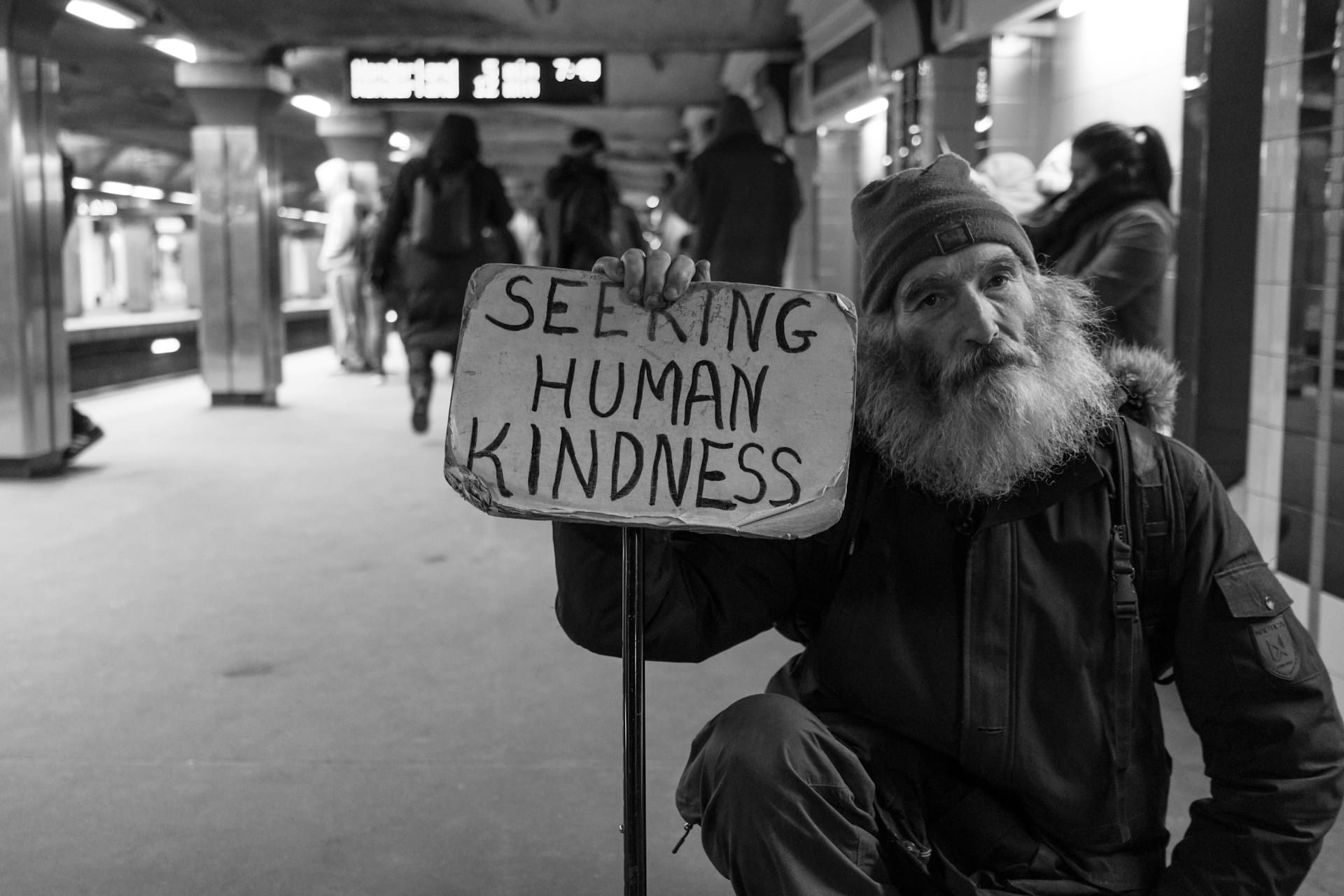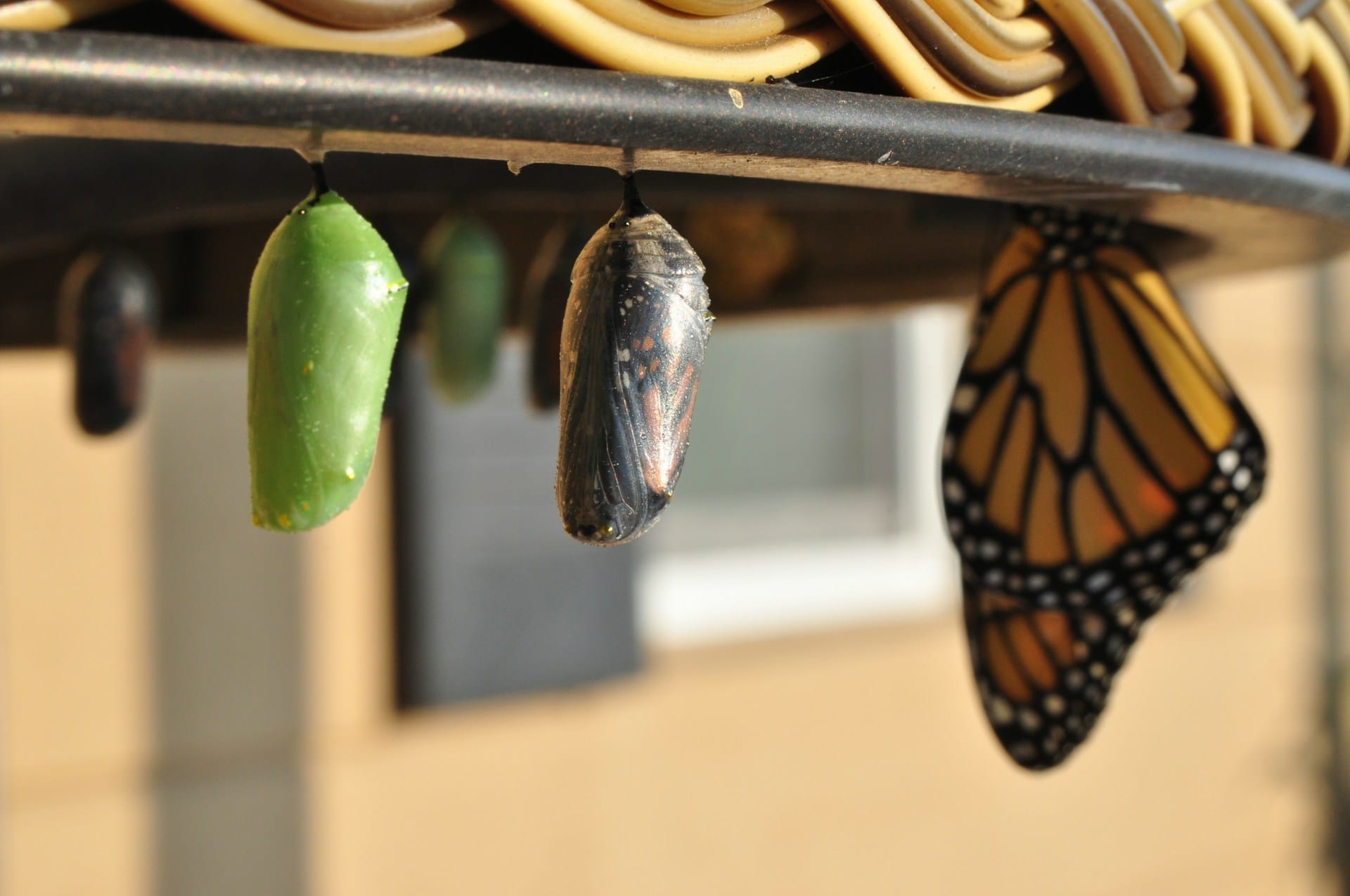why growth is not antithetical to enough-ness
An unexpected lesson on growth mindset learnt from The Centaur's Wife

I've been reading The Centaur's Wife by Amanda Leduc, a fantasy novel in a post-apocalyptic setting featuring centaurs and humans. Magic and catastrophe in a book.
To say I love this book is an understatement. I'm only halfway through reading it, savouring it a page at a time. The writing is gorgeous, the story tugs at my heartstrings, and I absolutely absolutely love the slow pace at which it unfolds, heartbeat after heartbeat, with several short tales of magic interwoven with the larger story.
I'm at the point where we learn that the main character, Heather, and her father climb up a forbidden mountain behind their village. It is believed that centaurs and monsters roam on the mountain.
Heather is 12 years old when they climb up. She has a damaged leg. Her father is nothing but supportive, and he encourages her to climb.
While up there, they happen to see a centaur. Heather's father immediately reaches out to the magical being and asks if it can cure Heather, which comes as an unexpected request to the 12-year-old who had thought that her father had always been OK with her disability.
"Hello," her father breathes. The tone of his voice makes Heather think of church.
"Hello," the creature breathes back. She sounds excited but also afraid. Her voice is sweet and clear and strange. Heather feels frightened but also electric—The stories, she thinks. The stories are true. She glances at her father and she can tell he's thinking the same thing. He gets up from the rock and takes several small careful steps forward, then reaches out and puts a hand around the creature's wrist.
"What are you?" her father asks.
The creature blinks. "I am ... a centaur," she says.
"Centaur," he repeats. Then he nods. "Help us," he says. "Help my daughter."
The shock of his words is like slimy ice in her veins. Her father turns to her and smiles reassuringly, reaches for her with his other hand. "You made it all this way, Heather-Feather," he says. "Now just think what you'll be able to do when your legs don't hurt anymore."
In a later chapter, we get to understand what Heather thinks of her father's request to the centaur.
Help us, he had said to the creature. I know you can heal her.
So she hadn't been perfect, or strong. Not really. Not enough.
....
Just think what you'll be able to do when your legs don't hurt anymore.
Because climbing halfway up a mountain hadn't been good enough, hadn't ever been good enough, no matter what he had said.
....
No one walks like you, Heather-Feather. That's something to be proud of.
Until it wasn't. Until he'd wanted her to walk like everyone else.
Granted Heather is a 12-year-old with a good-or-bad or white-or-black outlook towards life, unable to allow for contradictions to coexist.
But when I read these lines, it rang so true to the thoughts I often have in my head when I receive feedback, to the reactions I see in D sometimes when we give him a suggestion, to what I learnt in my first week as an international student in Canada exactly a decade ago, that I had to pause and come here to make sense of it all.
Because the instant Heather saw her father reach out for a cure, she was quick to believe that his acceptance of her and her disability had been a lie. Because, reasoning it from her point of view, if he had truly accepted her for who she was, why would he be tempted by the possibility of a cure?
Not black doesn't necessarily mean white. Let's not forget the shades of grey and all the other colours in between.

The more I think about it, the more I realize that all this while, I had completely misconstrued what contemporary pop psychology has to say on self-worth, enough-ness, self-acceptance, or on any other topic for that matter.
If 'doing' does not define our worth, then surely 'not doing' is the antidote to our miseries, isn't it? Except, when we fall into the state of 'not-doing', why does it leave us feeling so unfulfilled?
That's a classic example of black-and-white thinking. I had completely missed the nuance that the opposite of 'doing' is not 'not doing'.
Instead, I now see that the 'doing' that is talked about refers to the 'doing' that tends to come from a place of greed and discontentment, which leaves us feeling even more so despite all our accomplishments.
Whereas, the opposite of it is not 'not doing' but rather 'doing' from a place of contentment and fulfillment, from a place of confidence and faith in ourselves and how our lives unfold.
Because when you see the spiritual gurus of today who preach this wisdom, they themselves 'do' a lot. It's a vastly different quality of 'doing' than the ones many of us indulge in.
When I first arrived in Canada exactly a decade ago, it was to pursue an MBA degree at a reputed school in a reputed university. Before the general orientation programs for all students started, the school organized a week of orientation for international students alone.
This was great because most international students were new immigrants, so to be put in a group with each other allowed many of us to communally solve common problems such as housing, friendship, logistics of settling in a new place etc. that everyone was facing.
One of the things I remember from this week is a session in which one of the program directors talked about cultural differences between Canadians and international students.
He said (and I paraphrase, my memory obviously having shape-shifted in the last 10 years),
Never help a Canadian without being asked to. If you do so, they'd feel that you consider them incapable of the task they're attempting.
I have to ask my Canadian friends here. Is this really true? I didn't find this to be true in my experience, but again many of my friends are well-travelled and from many different parts of the world, so I reckon they're more accommodating of behavioural differences arising from differences in cultural backgrounds.
Even back then my reaction to this statement was one of surprise and shock. Over the years, I've come to notice a few things.

Now that I'm older and wiser (at least I like to think that I am), I understand the wisdom of allowing people to complete a task they're struggling with as well as the wisdom of offering help.
They are not really contradictory. It's the same as allowing a butterfly to emerge from its cocoon on its own, and it's the same as tending to a bird with a broken feather until it heals and can begin to fly again. There are no hard and fast rules here.
But an offer of help need not be misconstrued as a blemish on one's self-worth or ability in any way. An offer to help is simply that — an act of generosity on the part of a human being looking to connect with us.
It says more about the thoughtfulness of the person offering help, and nothing at all about our ability or inability to execute a task.
If we feel capable of finishing a task in that moment, we can politely decline the offer. If we feel we need help, we can be grateful for the fact that assistance appeared when we needed it and accept it for the gift that it is.
The potential for growth/improvement need not imply not-enough-ness. It need not set us out in the pursuit of perfection.
D has been learning to play the piano for the last six months. Initially, the lessons were easy, progress was quick and evident, and he was motivated enough to practice everyday without needing any reminders on our part.
Off late, the lessons have been getting harder. More nuanced. It's boring for him to try the same sequence of notes over and over again, so getting to the piano to practice has been harder, less frequent, and something he now seems to need reminders for.
To be clear, learning to play the piano was not a decision we forced upon him. It's something he was keen to take up.
But learning a new skill takes time and deliberate practice. Does that mean we're not enough because we haven't acquired a skillset yet? Far from it!
I think sometimes we tend to use the armour of 'I am enough' to keep ourselves from facing difficult situations. Maybe not intentionally so, but I know I've fallen prey to this kind of thinking more often than not until I realized what was happening and consciously worked on changing this attitude.
Enough-ness is not at odds with striving. When 'striving' becomes a problem is when it comes from a place of lack and with an eye on the reward without regard for the process involved.
Enough-ness does not equal stagnation. Just as contentment does not equal complacency.
In our obsession with words, we often lose the essence of the message.
As Lewis Holmes says in his book, The Greatness Mindset,
You are enough and becoming more!
... Instead of measuring our accomplishments to see if we are really enough, we need to flip it and just say the effort itself reveals our worth.
Simply put, working towards a goal need not mean that we're coming from a place of lack or not-enough-ness.
We can be content with who we are, and still strive to see if we can rise up to new challenges. We can be happy with all that we've achieved so far, and still feel the need to add more value to this world.
And if we don't feel that drive, that's OK too! So long as it's not coming from a place of shying away from difficult situations.

Presence vs Potential
A seed is a seed. It doesn't lament its seed-ness. But if it says, "It's enough that I'm a seed," it will never grow into the flower or the tree that it's meant to be.
We can look at ourselves as seeds, ever-growing, ever-changing. The mistake we tend to make is that we're always looking at other flowers and wondering when we'd possibly become one too. And in that longing, we begin to despair our current state of being a seed.
It's the difference between running towards the finish line versus running away from a bear that's chasing us. In both scenarios, the action is the same: running. In one scenario, we're running towards something. In the other, we're running away from something. And that difference determines the quality of our run.
As clinical psychologist and conscious parenting coach, Dr. Shefali, said in a recent podcast,
Start celebrating the small wins instead of focusing on the potential grand wins that may never come!
This is not to say that we don't strive to do our best. We can celebrate our little progresses, instead of lamenting that one big final goalpost that always seems to be far out of sight.
We can celebrate our being a seed, then a stalk, then having leaves unfurl from our stem, then the buds that begin to form and eventually blossom.
Maybe we'll never reach that final stage of being a flower in full bloom. Perhaps a squirrel will trample upon us or a rabbit might come and chew our heads off. (Which is what happened to our tulips this spring, so none of them bloomed.)
But that's OK. Because we'd have enjoyed being a seed, a stalk, a leaf, a stem ... whichever part of the journey we progress through, we'd have made the most of it and celebrated our efforts and progress in that stage.
So here's to a summer of being enough and also of blooming and evolving, and celebrating each step of this never-ending journey of growing and becoming more and more of ourselves.





